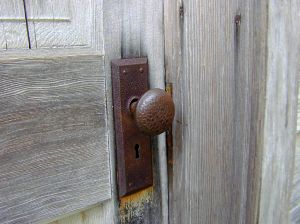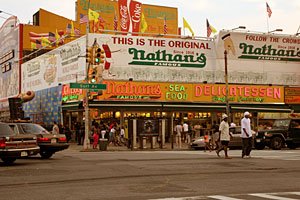In Romans chapter 1 Paul wrote the following:
Paul, a servant of [Messiah] Jesus, called to be an apostle, set apart for the gospel of God, 2which he promised beforehand through his prophets in the holy Scriptures, 3concerning his Son, who was descended from David according to the flesh 4and was declared to be the Son of God in power according to the Spirit of holiness by his resurrection from the dead, Jesus [the Messiah] our Lord,
Jesus is declared to to be the Son of God by being raised from the dead (again, for folks reading this blog re-read previous posts to understand what we mean by "Son of God").
So what's the evidence for the Resurrection?
1)
Jesus died on the cross and was buried. His earliest enemies knew this to be true. And no one, until Mohammed, doubted that he died on the cross.
Justin Martyr, circa 150, refers the Roman emperor to the works of Pontius Pile in his archive for the reports of Jesus' death and miracles. His death is mentioned by Cornelius Tactitus around 112-124 A.D. Lucian of Samosata, Josephus, and the Letter of Samosata all mention Jesus' death. Jewish Talmudic writings also corroborate this fact.
I have already mentioned I Corinthians 15, written by the apostle Paul. Versus 3 through 5 are believed to be an early Christian creed dated to the first 5 years after Jesus' death. Mark, the earliest gospel at around 40 A.D., records Jesus' death. These report Jesus' death very early.
While some skeptics have doubted the existence of Jesus, let alone his death, there is no basis for this. The earliest Christian record, the secular record, and even the enemies of Christianity all knew the fact of Jesus' death.
2)
The tomb was empty the first Easter morning. While this is a more controversial piece of evidence, it is backed by solid historical evidence.
The Christian movement started in Jerusalem. If the tomb was occupied, this would be the last place to start. Produce Jesus' body or point to the tomb and the movement would have been over.
This is also part of the earliest Christian testimony. It is implicit in the early creed from I Corinthians 15. It is mentioned in Mark, the early gospel, and all the other gospels.
Despite these good reasons, there is one reason that shows the empty tomb to be a fact, while showing God's sense of irony at the same time. From the gospel of Matthew (chapter 28) to Justin Martyr to Teretullian to Toledot Yeshu (a Jewish medieval work based off of earlier sources) the counter-argument to the Resurrection was that the disciples stole the body. The disciples then countered that there were guards at the tomb. The Jewish authorities then argued that the guards fell asleep.
Stop for a second. What are the opponents of Jesus admitting? The empty tomb. We have positive evidence from a hostile source that Jesus' grave was empty.
Here is a good article which establishes the fact of the empty tomb in more detail.
3) The third piece of evidence, which is clearly shown from the New Testament, is
that the disciples claimed to have post-resurrection experiences with Jesus.
4)
The last piece of evidence is that these same disciples went out and suffered for this message.Christian historian Eusebius records deaths of Peter, Paul, James the brother of Jesus and James the brother of John. Acts 12:2 records the death of James, the brother of John. Josephus records the death of James, the brother of Jesus. Clement of Rome (d. 100) mentions the deaths of Peter and Paul. Oral tradition of the early church records many of the martyrdoms of the apostles. When I was watching the History Channel, a historian on a show about the apostles said (and she didn't appear to be a believer) that these extra-biblical traditions show us accurately where the apostles went and how they died.
Paul and James claimed to have seen Jesus post-Resurrection and they weren't part of the pre-Resurrection followers of Jesus.
Whatever doubts arise about whether certain apostles were martyred, the testimony of second and third generation believers indicates most of the apostles died for their testimony. Clement, Ignatius, Polycarp, and Justin Martyr are examples of these believers who also died for what they believed. If the student is willing to die, how much more so the master?
Now, dying for a cause in and of itself doesn't make something true. But this piece of evidence shows us they were sincere.
My contention is that the only thing that can explain all of the above is the Resurrection of Y'shua, the Messiah.
Now, there have been a variety of counter-arguments. Feel free to posit them in the comments section, and we can hash this out. You should try to account for all 4. Jesus died. His tomb was empty. His followers claimed to have seen him and then went out and suffered and died for that testimony.
I've discussed this many times and have run into many different arguments.
Here is my article which goes over the above and then tries to go over counter-arguments as well, so you may want to check those out first before responding.
I think someone once tried to posit UFOs as an alternative explanation. I have yet to respond to that line of argumenation.










